Edinburgh Woollen Mill rescue deal to save 2,000 jobs
- Published
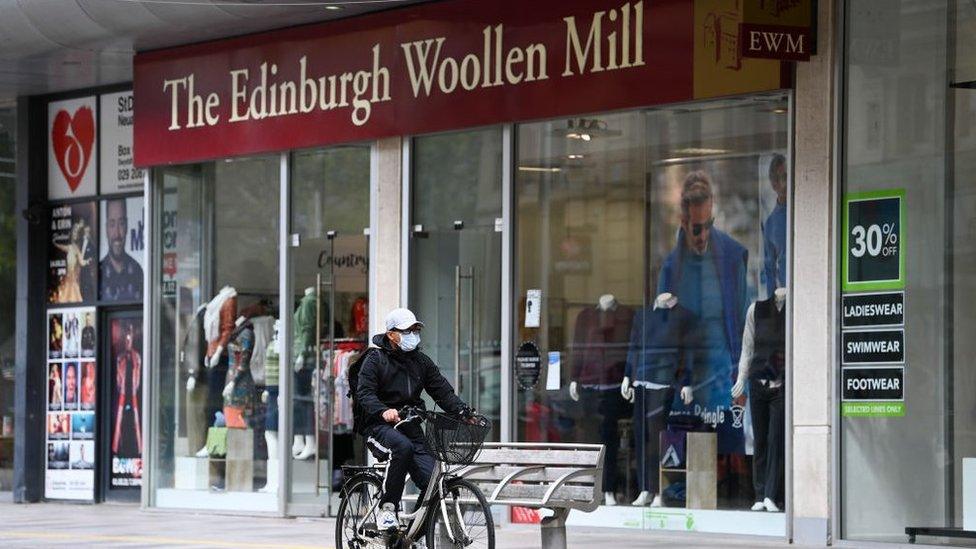
A deal has been agreed for the sale of the Edinburgh Woollen Mill, Ponden Home and Bonmarché chains, which were on the brink of closure.
The businesses went into administration last year after a collapse in sales due to the pandemic.
Almost 2,000 staff will be kept on but as many as 260 stores could close.
The buyers are a consortium of international investors who will inject fresh funds into the business, led by the existing management team.
Edinburgh Woollen Mill, which sells mid-price knitwear and other clothing to older shoppers, is part of a stable of retail brands owned by billionaire businessman, Philip Day.
It is understood that Mr Day will effectively lend the group the money to buy the businesses which will be paid back over a number of years.
The deal also covers two other brands in the group, value retailer Bonmarché, and Ponden Home, an interiors chain based in the south east of England.
The new owners plan to operate 246 stores across both the Edinburgh Woollen Mill and Ponden Home brands, retaining 1,453 staff in those stores, the head office and distribution centres in Carlisle.
However, 85 Edinburgh Woollen Mill stores and 34 Ponden Home stores have been closed permanently, with the loss of 485 jobs.
Wakefield-based Bonmarché will retain 72 of its stores and 531 staff including head office and distribution centre staff.
The majority of its stores, 148 outlets, remain under review with staff on furlough.
Administrators representing Edinburgh Woollen Mill and Ponden Home said the deal represented the best chance to save stores and jobs, given the difficult outlook for UK retail.
"We regret that not all of Edinburgh Woollen Mill and Ponden Home could be rescued," said Tony Wright, partner at FRP. "This has resulted in a significant number of redundancies at a particularly challenging time of year and period of economic uncertainty."
Retail has been particularly hard hit by measures to curb the spread of Covid-19. Even when shops have been open many shoppers stayed away, wary of the health risks.
The British Retail Consortium said consumers bought 5% less last year than the year before (not including food). Much of that custom switched from the High Street to online, making it harder for chains whose customers usually shop in person. Physical stores saw sales drop by a quarter, the BRC said.
Other major brands including Topshop-owner Arcadia and Debenhams have also gone into administration, costing hundreds of jobs.
"Lockdowns have proved hugely damaging for mid-range fashion chains like Edinburgh Woollen Mill and Bonmarché whose traditional customer base has not adapted so quickly to online shopping as younger shoppers," said Susannah Streeter, analyst at Hargreaves Lansdown.
"The backers of this rescue deal clearly believe there is pent-up demand amongst core customers which will be released once the doors are flung open once more," she added.
On Monday, Marks & Spencer announced it was buying Jaeger, another brand that had belonged to Philip Day's portfolio.
Peacocks, another High Street fashion brand in the EWM group remains in administration.
- Published12 January 2021
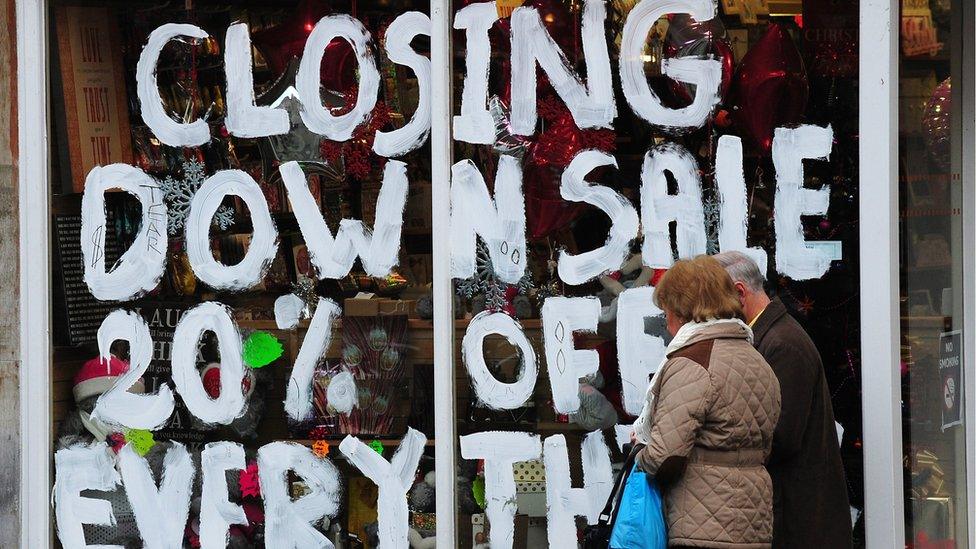
- Published11 January 2021
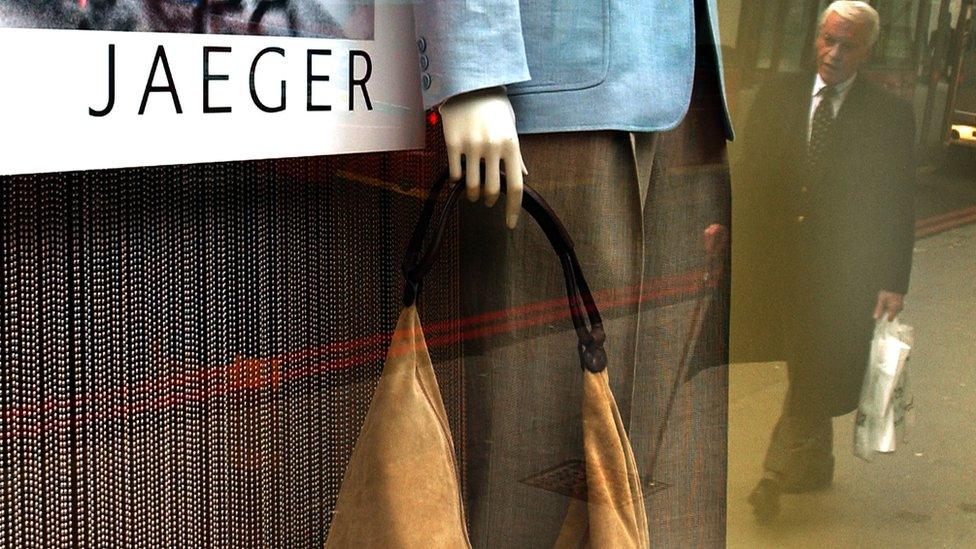
- Published6 November 2020
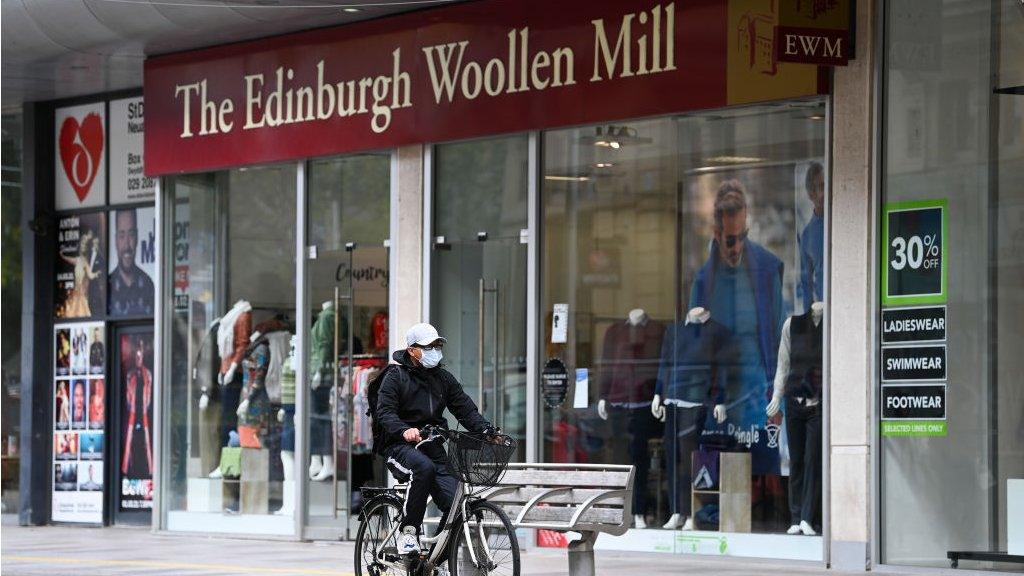
- Published2 December 2020
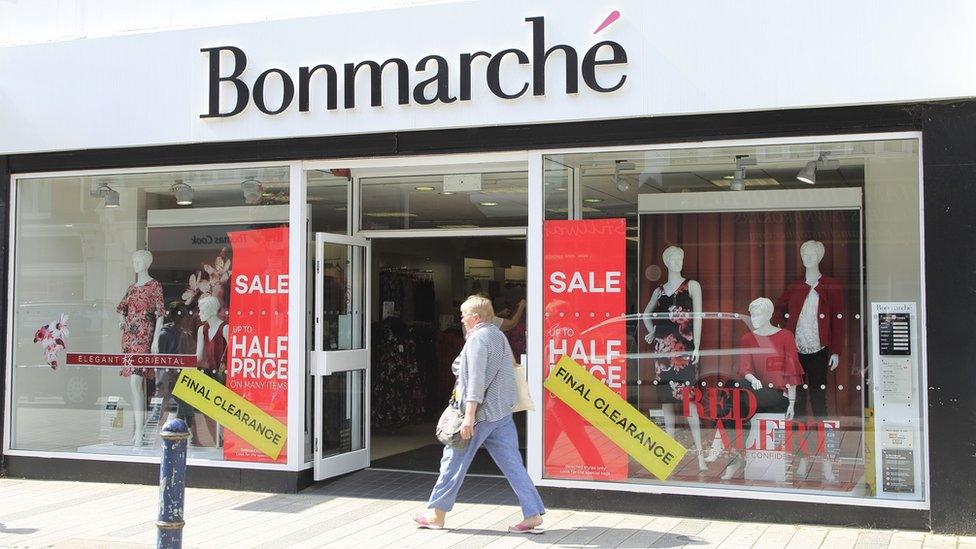
- Published5 January 2021

- Published1 January 2021
